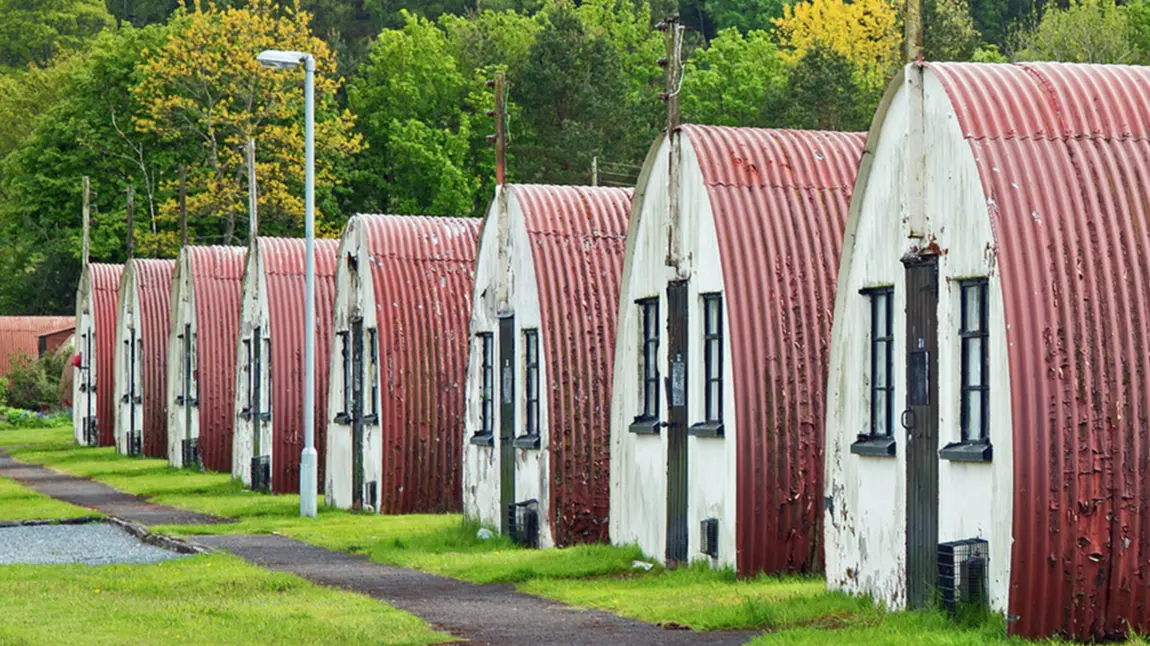Modern-day rescue for Second World War heritage thanks to HLF

While the fascinating parts they played during the Second World War will be researched and shared, their roles today will be very different, helping their local communities flourish.
Lucy Casot, Head of HLF in Scotland, said: “What these two projects have in common is that they are part of Scotland’s Second World War history and that, sadly, they are both in a sad state of repair.
"Thanks to players of the National Lottery, we are delighted to be able to help bring them back to life, not in the way that they were first intended, but in a way that is relevant to today. This will not only help secure their future, it will bring enjoyment and learning to very many people and a boost to their local economies.”
Built as a passenger cruiser for 75 people in 1927, Skylark IX was called to the aid of the stranded Allied troops in Dunkirk in 1940. She, and the ordinary seamen that sailed her, saved over 600 lives. However, due to disrepair, the Dunkirk Little Ship sank on Loch Lomond in 2010. Now, raised by the Royal Navy following a veterans’ campaign, the boat will be transformed into a floating museum. Her restoration will be used as a training programme for recovering drug addicts from Alternatives, a community recovery programme in Dumbarton.
HLF has given the Skylark IX Recovery Trust initial approval for a grant of £423,300 for the project which will include 10 paid traineeships leading to recognised qualifications in woodworking skills. Once restored, Skylark IX will share her story with the help of community volunteers over a short sail along the Clyde from the Maritime Museum in Dumbarton. Local schools, education, arts and music programmes will ensure that the incredible history of this boat will never be forgotten.
Anne Dyer from the Skylark IX Recovery Trust said: “For three years now, we have stood together in our modern-day rescue mission to pay honour to our Dunkirk Little Ship. Together on the beaches of Dunkirk we prayed that one day we would restore Skylark IX to her full glory again. We have the local community behind us both young and old and today with the great news of initial approval from HLF we are moving forward for sure. We are pleased to say that recovery through recovery for both the people and the boat is within our grasp and her story will live on for generations to come.”
Eleven Second World War Nissen huts, which form part of the internationally important Cultybraggan prisoner of war (POW) camp, will be restored and converted into self-catering accommodation thanks to an HLF grant of £638,900, bringing economic benefits to the rural community and securing a future for this important heritage site.
Known as ‘Camp 21’ or ‘Nazi 2’, the camp was built in 1941 and had the capacity to hold 4,500 inmates. POW camp history ranges from the murder of a prisoner by other inmates to a de-Nazification scheme led by Herbert Sulzbach, whose message was of peace, reconciliation and the need to become ‘good Europeans’.
Cultybraggan became an army training facility between 1949 and 2004 and is now owned by the local community and managed by volunteers. Ten of the camp’s Nissen huts will be converted into high-quality self-catering accommodation with an eleventh restored as a common room displaying the history of the site.
Further information
- HLF: Shiona Mackay on tel: 01786 870638/07779 142890; or Jon Williams on tel: 0207 591 6035 or via email: jonw@hlf.or.uk
- Skylark IX: Anne Dyer on tel: 07973 456406 or via email: anne@alternativeswd.org; or Mary Burch on tel: 07432 12 1590
- Cultybraggan: Andrew Reid on on tel: 01764 671149 or via email: andrewmreid@btinternet.com